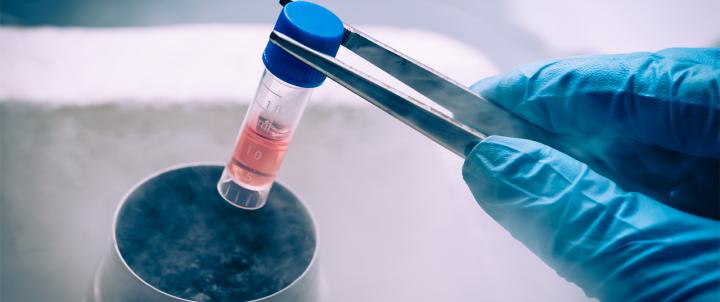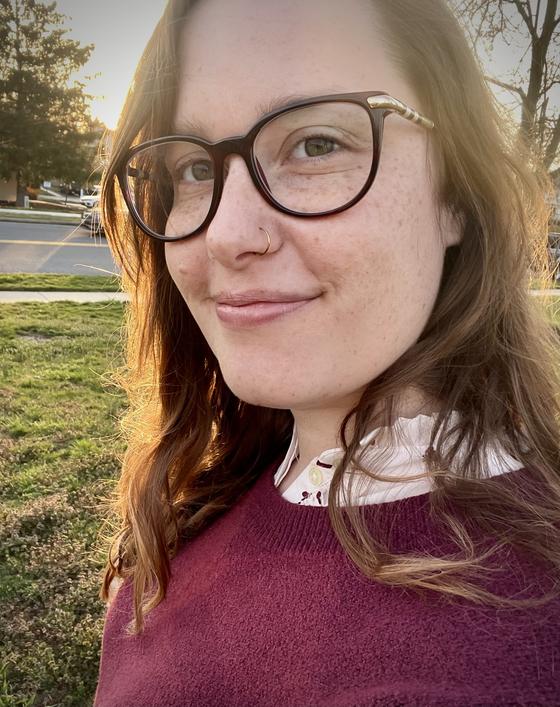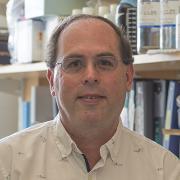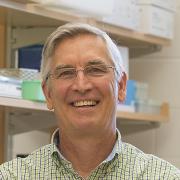
About this Program
Tailored specifically to the demands of the region’s growing hub of life science research employers, the program offers an alternative to conventional graduate education for those who work full time with courses that are taught in the evenings.
Program Overview
Tuition & Fees
Funding Opportunities
Download Biomedical Brochure
The biomedical science degree is a 33-credit program of graduate research and academic study developed for:
- Persons holding a bachelor’s degree and currently employed in a biomedical or biotechnological research establishment who are seeking additional academic background as part of a career and professional growth program;
- Teachers and other professionals with interests in biomedical science who wish to obtain a graduate degree; and
- Professionals already holding advanced degrees who desire to update or extend their previous academic experiences in biomedical or biotechnological sciences.
Well connected, close to home
Hood’s close proximity to Fort Detrick and the burgeoning biotech corridor make it the convenient choice for the area’s large population of lab and science employees. Strategic location also affords the program strong relationships with top R&D firms, biotech and pharmaceutical companies, and nearby federal and private laboratories. In addition to highly qualified full-time faculty, students benefit from the knowledge of adjunct instructors who are leaders at NCI, USAMRIID and other major research organizations.
Meaningful courses
Coursework begins with molecular biology, biochemistry and bioinformatics, after which students select a track in molecular biology or microbiology. Capstone project options include conducting laboratory research at the workplace or writing and defending a mock grant proposal. Classes are small and taught by instructors who know how to connect instruction to the real world.
View Hood Talks Understanding Cancer: Causes and Prevention webinar with Dr. Yeager.
Biomedical Career Development Opportunities
The NIH Summer Internship Program
In addition to full-time biomedical research opportunities, the NIH provides career development opportunities for all summer interns, including workshops, courses, journal clubs and access to the OITE Career Services Center. You can join our diverse community of more than 5,000 trainees for outstanding research and career development resources. The program accepts high school, undergraduate, graduate and professional (medical/dental/pharmacy/nursing, etc.) school students in biomedical, social science, behavioral and computational fields.
SIP includes several subprograms designed to help build a diverse and inclusive scientific workforce. PLEASE NOTE: Although you use the online SIP application to apply for all these subprograms, eligibility criteria, application deadlines, and program curricula vary. Please read each program's description carefully to decide which, if any, will best fit your needs. If you apply to one of these programs, you must submit your application before the subprogram deadline AND contact your references to let them know the deadline for receipt of their letters.
*Active duty Fort Detrick soldiers are eligible for a full tuition waiver for this program or any other graduate certificate and masters program at Hood College per our special Hood/Fort Detrick MOU.
Degrees Offered
- MS
Are you ready to go further?
Master's in Biomedical Science
- Applicants will be accepted into the program based on selection criteria that include undergraduate coursework, grade point average, area of research interest and experience.
- Relevance of the undergraduate degree is considered. Priority is given to students who majored in biology, biochemistry or chemistry.
- Required undergraduate coursework includes completion of the following with a grade of B or higher: microbiology, organic chemistry, pre-Calculus, upper level genetics (equivalent to Hood's BIOL 316) and cell biology (equivalent to Hood's BIOL 339).
- To apply to the biomedical science program, please submit the following to the Graduate School:
- All official transcripts from each institution of higher education attended; and
- An essay that discusses your work experience and future professional goals
In order to be admitted into the Biomedical Science master's degree (BMS), applicants are required to complete the following undergraduate classes (with a grade of B or higher):
- Microbiology
- Organic chemestry
- Pre-Calculus
- Upper-level-genetics (equivalent to Hood's BIOL 316)
- Cell biology (equivalent to Hood's BIOL 339).
Because not all former biology majors take each of our listed prerequisites, we designed BMS 501 as a one-semester course to replace one or two of these prerequisites. BMS 501 is not meant to replace the lack of a degree in biology, and certainly not the lack of completion of any undergraduate biology course.
Transfer credit policy for admitted students
Students may transfer a maximum of 6 graduate credits from an external, accredited institution, or another Hood graduate program prior to the first semester of study in the current program. Please review the full graduate transfer credit policy in the College catalog.
Prerequisite Course
The prerequisite course provides background knowledge and skills necessary for the completion of the degree requirements. Students admitted to the BMS program that do not meet all of the academic requirements for admission to the program will be required to take this course in addition to the 33 credits necessary for program completion.
| BMS 501/BIFX 501 | Foundations in Life Sciences | 3.0 |
Core Courses (all concentrations)
The core courses provide a foundation for electives in either curricular concentration: Biotechnology/Molecular Biology or Microbiology/Immunology/Virology. The program accepts up to 9 credits of transfer credit at the discretion of the program director.
| BMS 511/BIOL 411 | Protein Biochemistry | 3.0 |
| BMS 523 | Cell Structure & Function | 3.0 |
| BMS 524/BIOL 424 | Molecular Biology of Eukaryotic Cells | 3.0 |
| BMS 537/BIOL 437 | Introduction to Bioinformatics | 3.0 |
Curricular Concentrations
Students are encouraged to select elective courses within a concentration. The curricular concentrations are the faculty’s suggestions to help ensure a cohesive program of coursework. However, students, in consultation with their academic advisers, may select a combination of elective courses individualized to their own needs and interests.
Concentration in Biotechnology/Molecular Biology
| BMS 505 | Biostatistics | 3.0 |
| BMS 512/BIOL 412 | Biochemistry of Intermediary Metabolism | 3.0 |
| BMS 520 | Protein Purification and Characterization | 3.0 |
| BMS 525/BIOL 425 | Virology | 3.0 |
| BMS 528/BIOL 428 | Immunology | 3.0 |
| BMS 529 | Oncology Drug Discovery | 3.0 |
| BMS 534/BIOL 434 | Basic Principles & Methods in Molecular Genetics | 3.0 |
| BMS 535 | Methods of Molecular Research | 3.0 |
| BMS 539 | Molecular Immunology | 3.0 |
| BMS 540 | Advanced Topics in Recombinant DNA Technology: Genome Analysis & Mapping | 3.0 |
| BMS 541 | Advanced Topics in Recombinant DNA Technology: Gene Structure & Function | 3.0 |
| BMS 542 | Ethics in Science | 3.0 |
| BMS 590 | Advanced Topics in Biomedical Techniques | 3.0 |
| BMS 597 | Internship | 1-3 |
Concentration in Microbiology/Immunology/Virology
| BMS 505 | Biostatistics | 3.0 |
| BMS 512/BIOL 412 | Biochemistry of Intermediary Metabolism | 3.0 |
| BMS 525/BIOL 425 | Virology | 3.0 |
| BMS 527 | Pathogenic Microbiology | 3.0 |
| BMS 528/BIOL 428 | Immunology | 3.0 |
| BMS 529 | Oncology Drug Discovery | 3.0 |
| BMS 533 | Medical Virology | 3.0 |
| BMS 539 | Molecular Immunology | 3.0 |
| BMS 541 | Advanced Topics in Recombinant DNA Technology: Gene Structure & Function | 3.0 |
| BMS 542 | Ethics In Science | 3.0 |
| BMS 543 | Advanced Immunology | 3.0 |
| BMS 552 | Biomedical Literature Review | 3.0 |
| BMS 590 | Advanced Topics in Biomedical Techniques | 3.0 |
| BMS 597 | Internship | 1-3 |
Thesis Track Requirements
| Four core courses | 12.0 | |
| Four elective courses | 15.0 | |
| BMS 580A | Biomedical Science Thesis A | 3.0 |
| BMS 580B | Biomedical Science Thesis B | 3.0 |
BMS 580: under the direction of a thesis adviser and a reading committee (6 credits).
An oral defense of the thesis is required. Click here for BMS thesis guidelines.
Non-Thesis Track Requirements
| Four core courses | 12.0 | |
| Six elective courses, three of which must be laboratory lecture courses | 18.0 | |
| BMS 571 | Biomedical Science Seminar | 3.0 |
| Preparation of a mock grant proposal draft (Submission of final written document and oral defense occurs in subsequent semester based on committee feedback) |
The 4PLUS program is designed for highly motivated students who have the desire to build career options into their undergraduate curriculum and earn a master's degree in biomedical science.
Hood College students currently majoring in biology are eligible to participate in a 4PLUS program that allows for a combined, and in some cases accelerated, master’s degree in biomedical science after the completion of their undergraduate program.
18-24 Months
Average Completion Time
33 Total Credits
Program Contact

Program Director

Assistant Director of Graduate Admission
Biomedical Highlight Stories

3MT Winner Spotlight | Amanda Wise
"The BMS program allowed me the flexibility and freedom to learn about the things I love for the joy of learning and expanding my skillset, with more opportunity for experimentation."

Graduate Athlete Spotlight | Garrett Hitchens '23
"I believe that my time at Hood College will serve to provide me with the toolset, both educationally and personally, to reach my professional goals."
Graduate Student Focus | Abigail Walke
“I work in infectious disease research, and the courses I’ve taken in the biomedical sciences program have helped me gain more knowledge in the field.”




